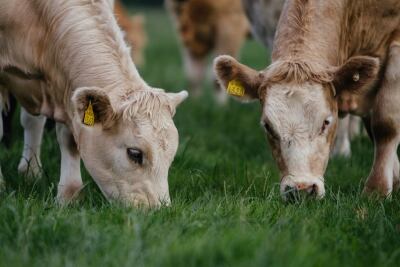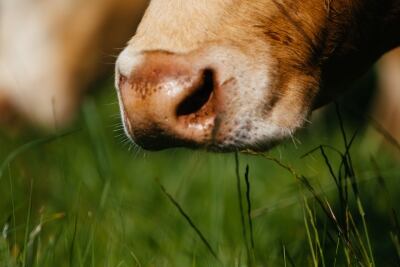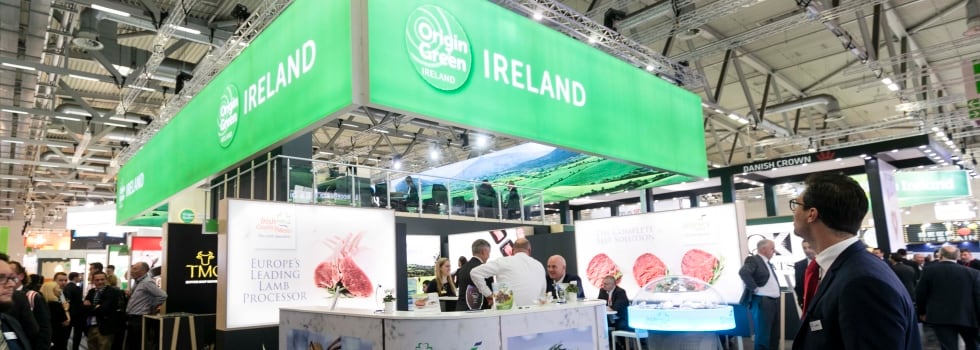Global meat is facing a double-headed challenge – on environmental and health fronts – and there has never been more need and urgency for the industry to work together to counter the contradictory and sometimes misinformed messages being fed to the public.
For example, the wider industry has hit back at a recent UN report, which claimed the West’s high consumption of meat and dairy was fueling global warming and suggested that switching to a plant-based diet could help. Certain governments, such as those in Britain and Germany, are even considering a tax on meat to encourage limiting consumption. Meanwhile, those of a more moderate disposition have suggested that a reduction in meat eating, coupled with eating higher-quality products, offers a better balance, given the positive attributes meat can contribute to a healthy diet.
There is a lot of miscommunication about the meat industry, especially the beef sector, when it comes to the effect it has on the environment. Not all agriculture systems are the same and the impact to the environment can change drastically.
At the same time, on the health front, there are a wide variety of health benefits associated with red meat, as it provides an array of essential vitamins, minerals and amino acids to help keep people healthy. All the leading health authorities in the world recommend that people consume a balanced diet, encompassing a range of food groups. There is clearly a place for meat within this.

The industry needs to work as a collective to educate consumers about the real impact of livestock rearing on the environment. For example in the UK, Meat Matters, a red meat intra-agency body, sees Irish organisation Bord Bia working alongside the Agriculture & Horticulture Development Board, Hybu Cig Cymru, LMCNI, QMS Scotland, The Danish Livestock and Meat Board and Beef + Lamb New Zealand to promote consumption of red meat. Some of this marketing and communication is on the nutritional benefits of meat, while also educating consumers on the benefits of a grass-based agriculture system for beef and lamb.
Meanwhile, in Ireland, to counteract the negative messages targeting both meat and dairy, Bord Bia, and all the other major stakeholders in the Irish meat and dairy sectors have joined forces to launch a ‘Meat and Dairy Facts’ campaign. This is aimed at educating the Irish public about the positive role that farmers play as custodians of the land and the care they have for their animals, as well as the nutritional benefits of meat and dairy.
This campaign also ensures that Irish consumers have the full facts about the benefits of meat and dairy products and how they can contribute to a healthy and responsible diet.
It is only through this collaborative approach that we can win the day with consumers and persuade them that meat production not only has a much less detrimental effect on the environment than they are sometimes led to believe, but that consuming meat is also a vital part of a well-rounded and healthy diet.
Through these and other measures, the Irish meat industry is taking a proactive stance to any misinformation trend, but Bord Bia is conscious that producers and processors need to ensure rigorous quality standards are adhered to at all stages in the chain, from farm to slaughtering and processing. The organisation encourages consumers to choose meat that has been produced, slaughtered and processed in accordance with an ISO verified Quality Assurance Scheme.
And let us not forget the economic importance of the meat industry to different markets. The meat and livestock sector plays an important role in the Irish economy, with exports reaching just under €4 billion in 2018, comprising beef, sheepmeat, pigmeat, poultry and live exports.

In addition, in terms of the environment, Irish farmers – along with everyone else in society – are rightly concerned about the need to protect the environment and combat climate change. Thanks to action already taken, Irish farmers are among the most carbon-efficient in the EU. Irish beef and lamb comes from a grass-based production system, where cattle and sheep graze outdoors longer than any other country in the northern hemisphere. Due to Ireland’s wet climate, the grass is full of nutrients and vitamins, such as Vitamin B12, Niacin, Vitamin B6 and Phosphorous. This grass-based method of farming brings with it major benefits for both animals and the environment alike
Many members of the Irish meat and farming industry are also signed up to Origin Green, Ireland’s national sustainability programme for the food and drink industry. This is an industry-led, proactive approach to sustainable production at all levels of our agri-food sector, from primary producer to manufacturer. Its programme enables Ireland’s food industry to set and achieve measurable sustainability targets that respect the environment and serve local communities.
Through the website www.origingreen.ie, Bord Bia provides updates on the progress of its members in meeting the goals of the programme. Each week, more than 800 farms are independently audited on sustainability measures across carbon emissions, animal welfare, water and grass usage, while meat processors are signed up to sustainability charters with targets across energy and water usage, raw material sourcing and employee wellbeing.
Now, global visitors from around the world can find out more about Ireland’s offering and how it is meeting the meat industry’s global challenges on the Origin Green stand at leading food fair Anuga, taking place from 5th-9th October in Cologne, Germany.
Led by Bord Bia, fifteen companies will illustrate to food buyers from around the world how Ireland’s offering can meet the demands of their consumers for sustainably produced food.
All the Irish meat companies participating at Anuga are fully verified members of Origin Green and include exporters of beef, sheepmeat, poultry and pigmeat, as well as game and value-added meats.
To find out more about the companies in attendance and about the sustainability of Ireland’s meat industry, see www.irishfoodanddrink.com/anuga-2019 .

